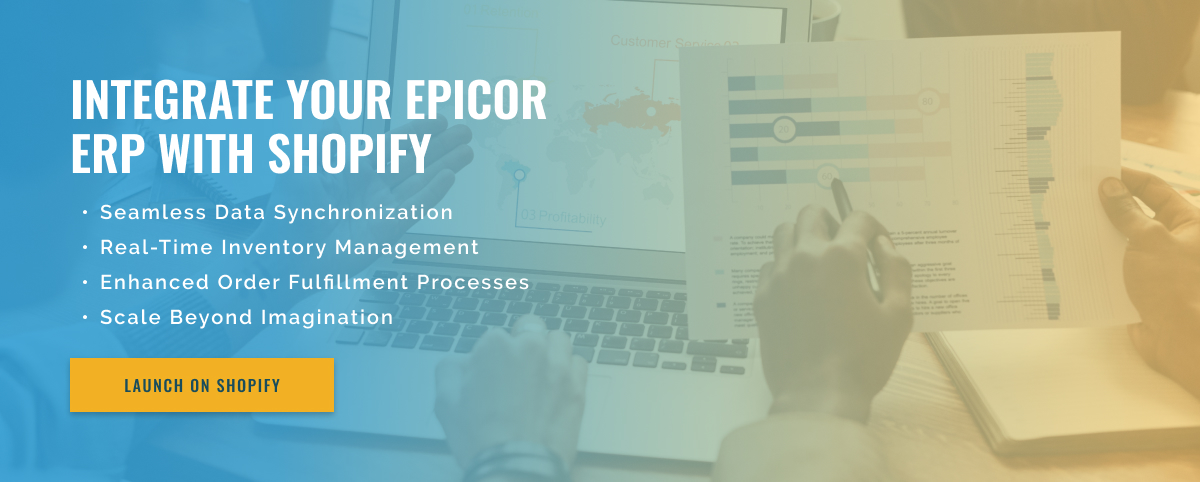3 minute read
Boosting Tax Compliance With Shopify and Epicor
In today’s modern world, eCommerce has become an essential part of the business landscape. It has revolutionized the way businesses work, allowing for easy and convenient online transactions. However, with the rise of online sales comes the complexity of tax compliance. Different states and countries have different tax laws, and it can be tricky for businesses to keep up with these regulations while managing their online activities. This is where the Shopify and Epicor integration comes into play.
Shopify is a popular eCommerce platform that allows businesses to easily create and manage their online stores. Epicor, on the other hand, is an enterprise resource planning (ERP) software that helps businesses with their financial management and operations. By integrating these two platforms, businesses can streamline their operations and ensure tax compliance.
One of the key ways the Shopify and Epicor integration makes tax compliance easier is through automatic tax calculations. With the integration, the system can automatically calculate the appropriate taxes based on the business’s location and the customer’s shipping address. This ensures that businesses collect the correct taxes and avoid potential penalties for non-compliance.
Additionally, the integration enables real-time tax collection and remittance. This means that the system can immediately calculate and collect applicable taxes as soon as a customer places an order on the Shopify store. These taxes are then automatically captured and transferred to the Epicor software, making tax filing and remittance seamless and efficient.
The integration also helps with tax tracking and reporting. Because the two platforms are connected, all sales and tax information is automatically synced, eliminating the need for manual data entry. This minimizes the risk of human error and provides accurate tax reporting, making it easier for businesses to file their taxes correctly.
Moreover, the Shopify and Epicor integrations also have features that make it easier to apply for and manage tax exemptions. Some products or services may be exempt from certain taxes, and the integration can seamlessly handle these exemptions and ensure that businesses do not overpay taxes.
In short, as tax compliance becomes increasingly complex for businesses, the Shopify and Epicor integration provides a solution to streamline operations and ensure compliance. The integration’s automated tax calculations, real-time tax collection and remittance, and accurate tax tracking and reporting make it an essential tool for businesses operating online. As eCommerce continues to grow, the importance of tax compliance cannot be ignored, and the integration of these two platforms will play a crucial role in meeting the tax obligations of businesses of all sizes.

